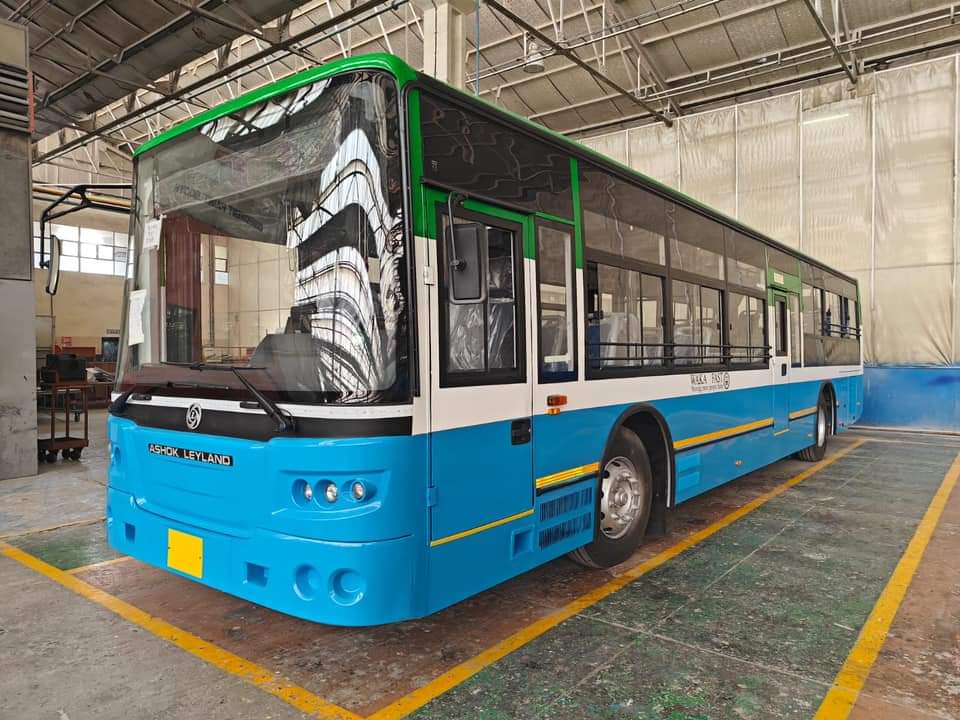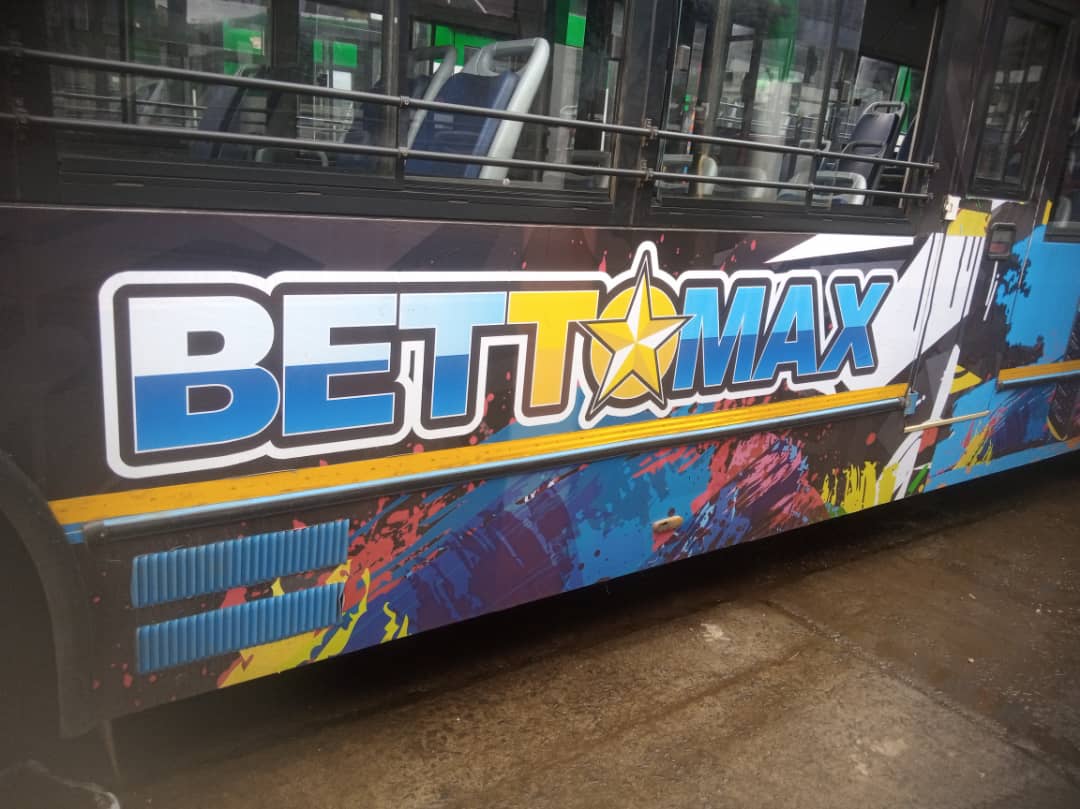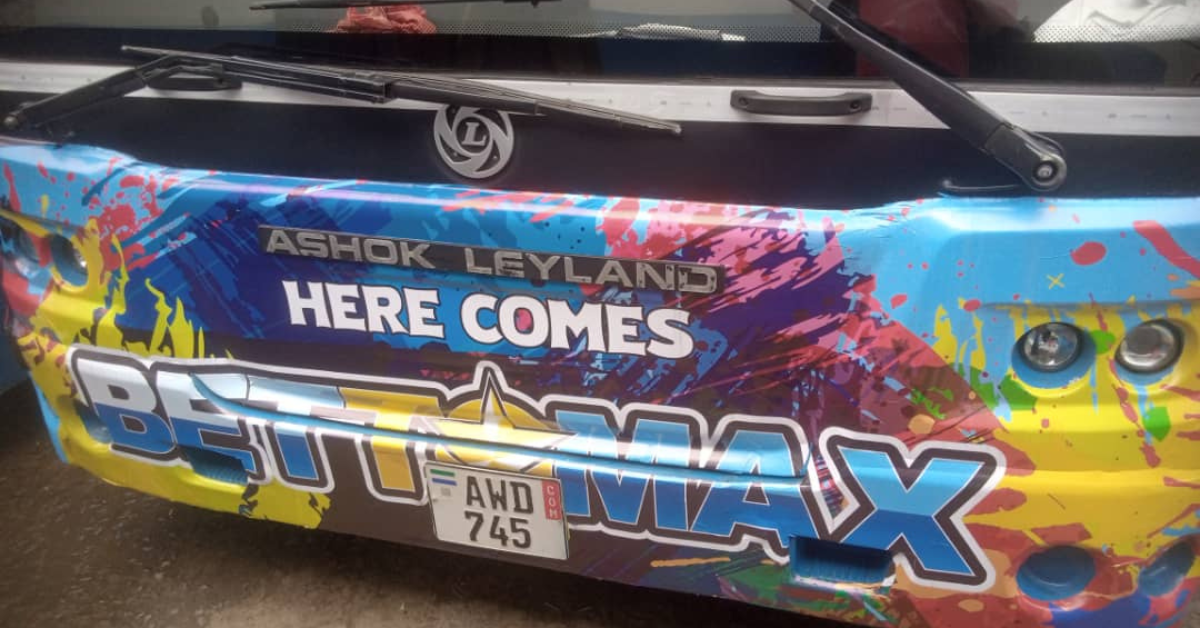In February 2024, the streets of Freetown witnessed the introduction of Waka Fine buses—a project widely hailed as a government initiative meant to ease transportation challenges for the ordinary Sierra Leonean.
These buses, proudly branded with the national colors of green, white, and blue, symbolized national pride, unity, and the promise of progress.
However, nearly eight months later, a heated debate has ensued after these very buses were rebranded with the logos of private companies—most notably Bettomax, a sports betting company. This change has raised significant concerns among the public, with opinions sharply divided. Is this rebranding a pragmatic move to ensure financial sustainability, or does it compromise the dignity of a national symbol and promote gambling in a country already grappling with socio-economic challenges?
This writer postulates two opposing perspectives on the matter.
Firstly, Advocates of the rebranding argue that allowing private companies to advertise on the Waka Fine buses is a smart financial move that ensures the sustainability of the transport service. The government, like many in developing nations, often faces financial constraints that limit its ability to maintain public services without external funding. By partnering with private companies, the government is creating a revenue stream that can contribute to the maintenance, expansion, and operational efficiency of the bus service.
Moreover, branding buses with private logos is not a new or unusual practice. Cities around the world, from New York to Nairobi, have allowed advertising on public transportation as a means to generate income. Sierra Leone is no exception, and this can be seen as a form of public-private partnership that ultimately benefits the common citizen.

The argument also extends to the idea that branding the buses with company logos, whether they belong to a betting company or not, does not necessarily diminish the value of the service. If anything, it reflects the realities of modern governance, where public services often rely on commercial partnerships to survive and thrive. As long as the government retains control over the buses and ensures they serve the public effectively, branding can be considered a mere aesthetic change, rather than a moral or ethical dilemma.
On the other side of the debate, many Sierra Leoneans view the rebranding of Waka Fine buses, especially with the logo of a betting company, as deeply problematic. First, the buses were introduced under the banner of national unity and pride, with the green, white, and blue colors representing the hopes and aspirations of Sierra Leone’s people. Replacing this powerful national symbol with a commercial logo, particularly one that promotes gambling, is seen as an insult to the very ideals these buses were meant to embody.
Betting and gambling, while legal, are often viewed as predatory industries that disproportionately affect the poor. In a country where unemployment rates are high and economic opportunities are limited, gambling can be seen as exploiting the desperation of the masses. By allowing a betting company to advertise on a public utility, the government may inadvertently be endorsing this behavior, sending the wrong message to the public—especially the youth—about what forms of economic engagement are acceptable.
The outcry from the public also stems from a deeper concern: transparency. Who truly owns these buses? If they are government-owned, why are private companies—especially ones in controversial industries like betting—allowed to brand them? The lack of clear information regarding who benefits from these advertisements further fuels public distrust. People are questioning whether the government is acting in the public’s best interest or if private entities are being allowed to profit at the expense of the people.

For many Sierra Leoneans, this issue goes beyond just the aesthetics of bus branding; it speaks to larger questions about the government’s priorities, values, and transparency. Should public resources like Waka Fine buses be used as billboards for private profit? Should the government prioritize short-term financial gain over long-term social and cultural values?
Ultimately, the debate over whether the Waka Fine buses should be branded is a reflection of larger tensions between financial pragmatism and national identity. While the government may need external funding to keep the buses running, it is crucial that this is done in a way that maintains the dignity of public services and promotes values that align with Sierra Leone’s development goals.
The controversy also highlights a critical need for transparency. Sierra Leoneans deserve to know who truly benefits from these partnerships and how the revenue generated is being used. If the government can address these concerns and strike a balance between financial necessity and ethical responsibility, the Waka Fine buses could still serve as a symbol of progress rather than one of controversy.












Lol 🥰😀🥰🥰🤣🥰🥰.
This is Sierra Leone (TISL).
“Ar get mango for sale, but duya try for sale fos later ar go join for sale D mango.”
Bo onna left de pepul dem wae commercial bank bhin do de same odat tok…abi na mercury dae behen de nonsense…
Here is Sierra Leone the unexpected is expected